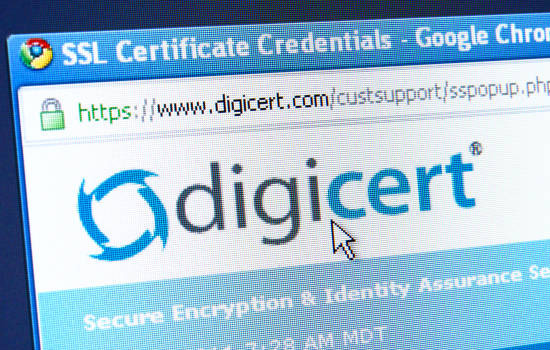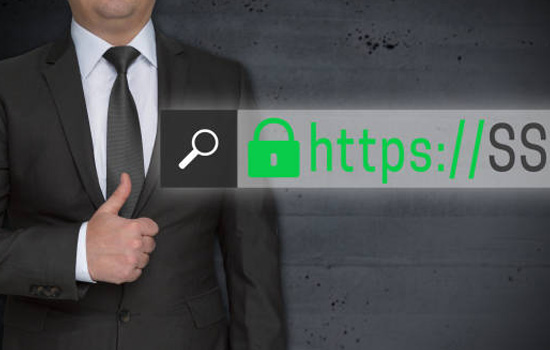The last few years have seen an increased focus on Online Security, We hear daily of online fraud and malware attacks, and as a result, people are increasingly wary of e-commerce. Phishing exploits targeted at individuals, leading to stolen financial data and emptying their bank accounts are becoming increasingly common.
Businesses have been subjected to ransomware demands, network-based denial of service attacks and theft of intellectual property, while potential customers seek reassurances that they are dealing with reputable organisations.
How can Online Security help rebuild user confidence? The answer is to implement SSL or TLS on your website.
What is SSL?

SSL is an industry-standard technology protocol used to establish an encrypted connection between a browser and a website and verify the identity of the website through certification. It is used by both sites using web hosting services and by private servers.
How is it Implemented?

A website server holds an SSL certificate for a website. The information in the certificate is the website public encryption key, and other identifying information for the website. Browsers connecting with the website will use the public key to encrypt traffic between them and use the identification data to verify that the website is whom it says it is.
What does an SSL do?

An SSL (Secure Sockets Layer) connection is a must-have for any website that wants to establish trust and security with its users. Here are several reasons why your website needs an SSL connection:
- Encryption – An SSL connection encrypts data transmitted between the user’s browser and the website’s server, ensuring that sensitive information such as login credentials, credit card numbers, and personal details cannot be intercepted and stolen by hackers.
- Authentication – An SSL certificate verifies that the website is legitimate and belongs to the organization it claims to represent. This helps to prevent phishing attacks and ensures that users are not being directed to a fake or malicious website.
- Search Engine Ranking – Google and other search engines give preference to websites that use SSL, as it indicates a commitment to security and user trust. This can lead to higher rankings in search engine results and more visibility for your website.
- Compliance – Many industries and organizations are required to comply with regulations such as PCI-DSS, HIPAA, and the EU’s General Data Protection Regulation (GDPR), which mandate the use of SSL connections to protect sensitive data.
- Browser warnings -Without an SSL connection, modern web browsers will display a “not secure” warning to users when they visit your website. This can create a negative perception of your brand and discourage users from engaging with your website.
How to get a certificate

Certificates are obtained from certification authorities (“CA”), trusted third parties that issue SSL certificates. They digitally sign the certificate with their own private key, allowing browsers to verify it.
A newly issued certificate is loaded onto the web server, usually by the web hosting service provider, enabling encryption and the https;// connection.
There is also the opportunity to create self-signed certificates yourself. They may enable an https;// connection, but they are not recognised as valid certificates by browsers, and the site is labelled as not secure.
SSL for Web Hosting Services

Service providers offering web hosting services are moving rapidly to hosting only certificated websites. This is because customers need certificated websites for their e-commerce activities to assure their customers of secure connections. A second reason is that connections to non-secure websites may be rejected by browsers.
They now need to offer certification as part of their web hosting plans, often providing free certification as part of their service offerings.
In addition, there are benefits to existing customers to offer certification of existing hosted websites.
In summary, an SSL connection provides essential encryption and authentication, improves search engine rankings, helps to comply with regulations and it also prevent browser warnings. It’s a must-have for any website that wants to establish trust and security with its users.


